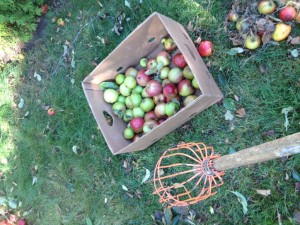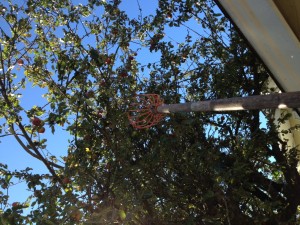Rtang: So alan you wanna tell me a bit about the project you’re doing for LFS 350? Like, what kind of things are you doing, and what kind of impact is it having on the community around it?
Alan: Yea, so we’re basically working on Chinese communities in Richmond and basically food security issues among them. What we identified so far through research and talking to our community partners and organizations is that 44% of Richmond is Chinese, that includes CBC’s (Canadian-born Chinese) and people of Chinese decent in general, and 8% of the entire Richmond is considered food insecure. So, the assumption is that there is 44% people in Richmond who are Chinese, a large number of the food insecure people might possibly Chinese people, and so what we found is that there is quite a huge disconnection between Chinese food insecure people and the local food movements. What I mean by that is they don’t take into considerations, for the most part, factors such as culture, food preferences, language barriers… so, in most of the food movements of events you see, such as the Richmond food bank when they distribute food, you’ll find that most of it doesn’t suite the preferences, the Chinese people’s preferences. One of the ways they distribute food is through this yellow package of basically of nutritious, instant nutritious foods. One of the most nutritious foods that was essential in the package was this, dry carbohydrate thingy that has lots of vitamins and minerals in it, and that was the most common food returned by Chinese people. Basically they responded that it didn’t meet their preferences, basically. Like, they just didn’t like how it tasted, how it, how the texture was. The most important food was actually returned by them. You know, so that kinda defeats the purpose right? So we realized things like this, you know, and that they are not really taking these factors into consideration.
Rtang: So then what exactly is your group then doing, to contribute to that? Does your group do surveying or…
Alan: Well the hard part about the project is that it is the first time that this has been done. In LFS 350 it is the first time they’ve had this project, specifically. Working on Chinese communities and so we as the pioneer group are sorta feeling out the steps as we go. And so at first we were told to do these things: number 1, identify the existing food movements and organizations, make an inventory of that and talk about, we then find out, present resolutions of what should be done. All of that, its a multi year project, if you think about it, to give a really detailed inventory, list of information on what they’re doing, and also to post solutions. Thats a really big project. Our TA told us that, that should be done by a PhD student on a multi-year project for a long.
Rtang: Wow!
Alan: Yea, so we were pretty, i guess lost at first, but out TA sort of gave us an easier time by telling us “you don’t have to do the second part” just make an inventory, thats it. So that basically gave us an easier time. So basically, we’re doing now is just to find and identify how ever many organizations we can that have food related movements. We are event doing things, such as interviewing churches and temples an religious organizations that might have food programs to offer, cause they contribute towards helping the food insecurity, fight against it right?
Rtang: What exactly are the results of the interviews going to used for?
Alan: Yea, we’re just gonna, i guess provide this inventory of what organizations are out there and what they’re doing basically and leave more of the analysis and recommendations for future LFS students. Yea, this remember this is the first time they’re doing this. But its gonna be passed on. So they’re gonna have all our information, they’re gonna work on top of that.
Rtang: The future goal, the end goal, after all of these LFS groups would be to…do what?
Alan: After they use our information analyze it, hopefully, thats the idea, they will hopefully recommend, find out effective solutions to breaking down these barriers and solving food insecurity among Chinese people.
Rtang: ah, cool, well do you have any picture that you wanna talk about?

Alan:So yea as part of out CSL, our community service learning hours, we were required to go into different organization and be part of that to see what they’re doing. One thing that I did was go with the RichmondRichmond food bank and help pick fruits off of local households. And so, how this works is that a lot of households in Richmond, they have fruit trees, vegetables trees, or plants in the backyards and stuff and they, they, contribute these out to the Richmond food bank cause they’re not able to consume it all. So they contribute out it out to the food bank and the food bank organizes volunteers to go to their houses their back yards and pick the fruit off. So thats what I’ve been doing. So i went apple tree cleaning, we picked 200 pounds of apples a day.

Rtang: *chuckles* Uhh wow, thats…
Alan: I got a few pictures of those.
Rtang: Thats really cool. Well thanks for your time Alan, and good luck with the rest of your project!
Alan: Thank you….
—-
Alan: Is that it?
Rtang: yea thats it!

